Top 10 newsmakers of 2019
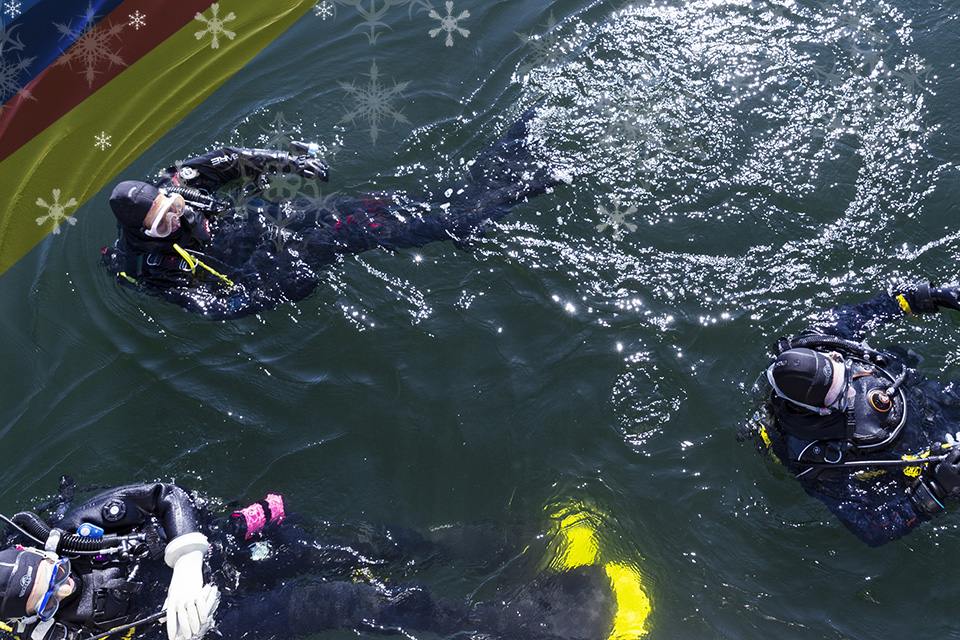
As 2019 swings to a close, we’re looking back at 12 months of captivating stories which helped shape a year of great news on UVic people, projects, ideas, creativity and research.
Here are just some of the many stories online, in print, on TV and radio. It was difficult to pick just 10. Bring on 2020!
Classroom under water
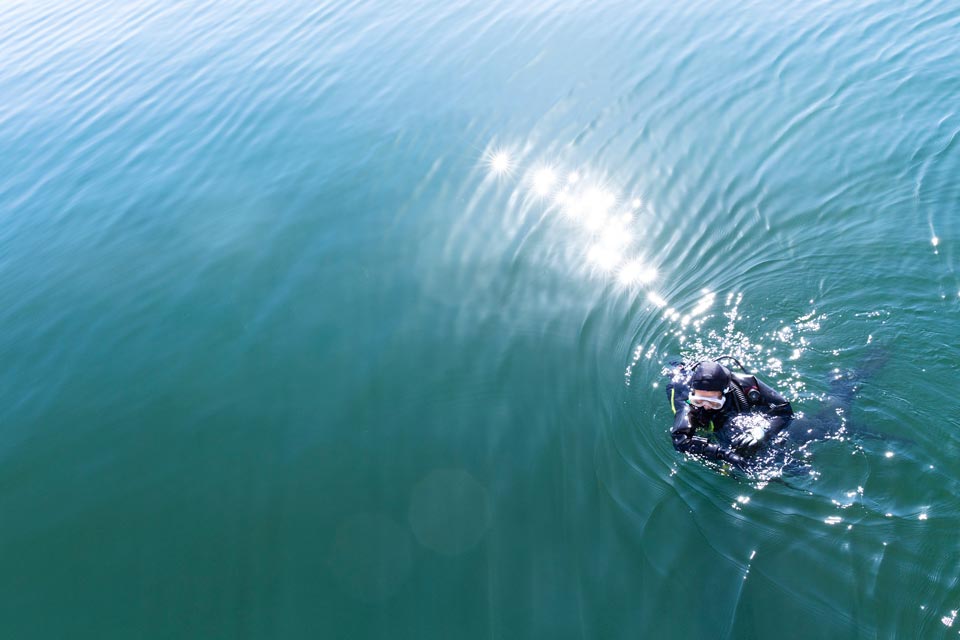
Repetition is a hallmark of UVic’s scientific diving program, which has given three decades of students the tools and training they need to safely conduct research in the cool depths of the Salish Sea, Saanich Inlet and other waterways. Based on the standards of the Canadian Association of Underwater Sciences, the program is part on-land and open water classroom to train compliance in a highly regulated area. The program is overseen by the university’s Occupational Health, Safety & Environment unit.
- Read the story on UVic News
Rock-solid climate solution
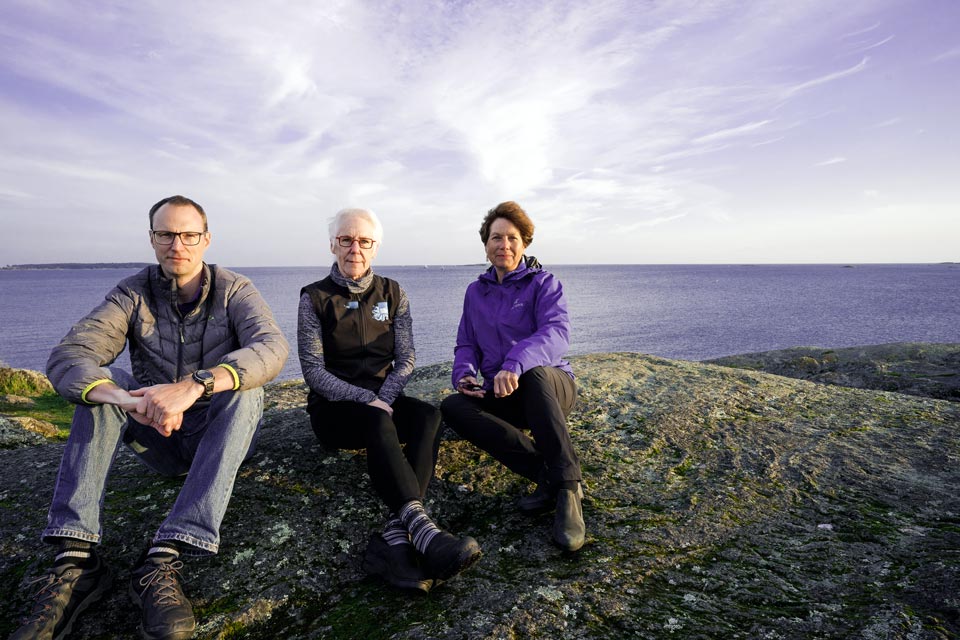
The UVic-hosted and -led Pacific Institute for Climate Solutions is bringing together an international team of experts to conduct a new four-year feasibility focused on negative emissions technologies. The Solid Carbon project aims to permanently and safely sequester carbon dioxide (CO2) as rock. The vision is to extract CO2 directly from the air, then, using deep-ocean technology powered by ocean-based wind and solar energy, inject the CO2 into sub-seafloor basalt, where it will mineralize into solid carbonate rock.
Kate Moran, president and chief executive of Ocean Networks Canada, is Solid Carbon’s principal investigator.
- Read the story on UVic News
- The story was covered in CBC News and Global News , along with being featured on CFAX and Global BC newscasts.
Caloric labelling on alcohol
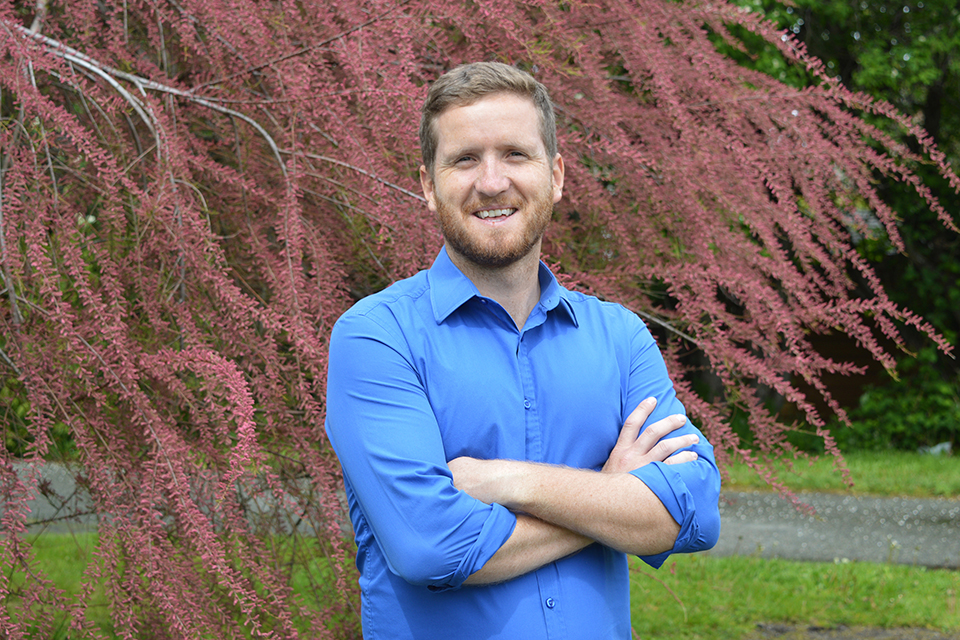
A study led by Adam Sherk, a post-doctoral fellow at UVic's Canadian Institute for Substance Use Research (CISUR), calculated how many calories Canadian drinkers were ingesting via alcohol. It turns out that the average drinker consumes 250 calories, or 11% of their daily estimated energy requirements, via alcohol—every single day.
Sherk was interviewed about his research and why he’s advocating that labelling be required on alcohol. He was featured in stories in The Toronto Star, Global News, CTV Vancouver’s “Morning Live,” AM 640 Toronto, News 1130 Vancouver and CBC News.
- Read the story on UVic News
- Coverage included the Toronto Star, Global News, CTV Vancouver’s “Morning Live,” AM 640 Toronto , News 1130 Vancouver and CBC News.
Google Earth zooms in on language revitalization
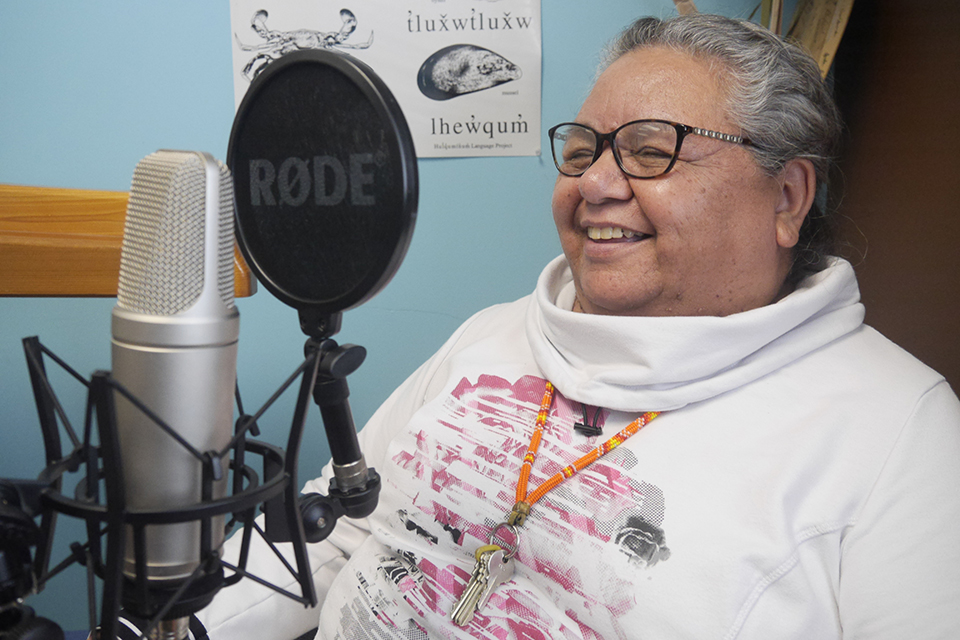
Google featured a UVic initiative prominently in its unveiling of a new Google Earth Voyager tool in 2019 for the International Year of Language Revitalization. The new tool shares the voices and perspectives of 55 speakers in 27 countries with anyone anywhere in the world. Indigenous languages teacher yutustanaat Mandy Jones (Snuneymuxw First Nation) is one of those speakers. UVic anthropologist Brian Thom led the BC project with yutustanaat.
- Read the story on UVic News
- The UVic project was featured on Google’s “Keyword” blog post as part of the Google Earth launch and also on CTV News, Global News, CBC News including CBC TV’s “The National” and APTN News, as well as on local media outlets too.
Humans consume a lot of microplastics
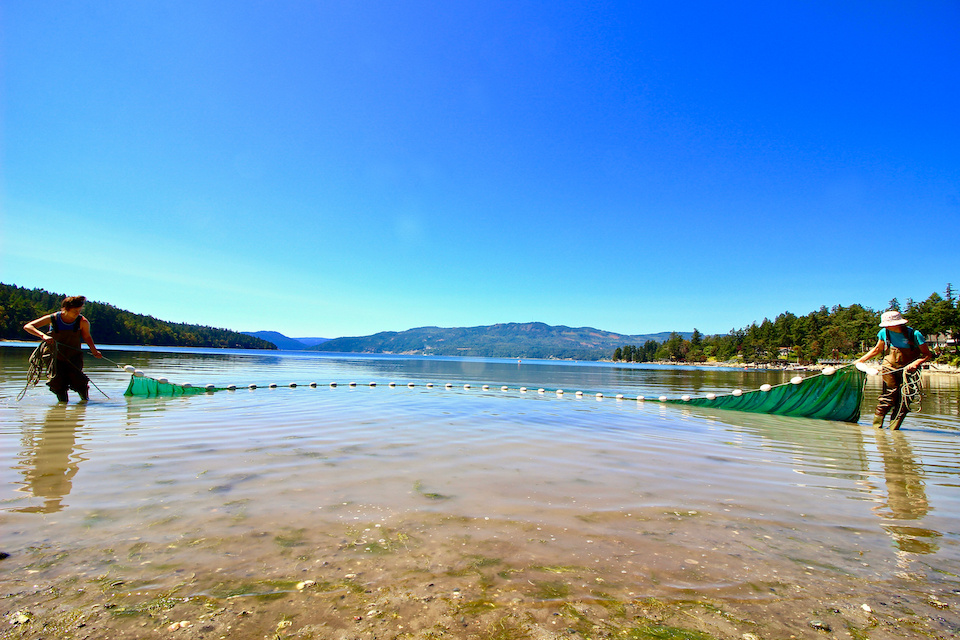
In a study this summer, UVic biology researchers found that humans are unknowingly consuming tens of thousands of plastic particles per year. The particles can easily sneak into our bodies undetected through food we eat and the air we breathe, says Kieran Cox, a marine biology PhD candidate in UVic Biologist Francis Juanes’ lab. The research shone light on a problem that requires further research to understand potential health impacts.
- Read the story on UVic News
- Coverage included The Guardian and Time magazine . This story also caught the attention of CBC News Network, which syndicated interviews with the researchers across Canada. The research is among the top five per cent of published research, according to Altmetrics.
International Indigenous collaboration in BC and Yukon
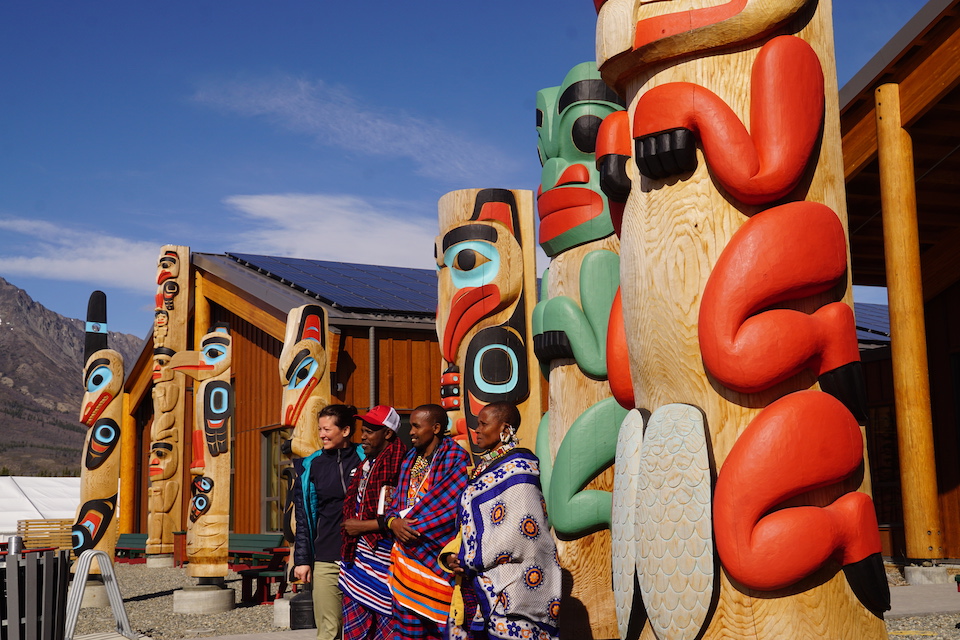
During a two-week visit to Canada this spring, three Maasai delegates from Northern Tanzania near the Kenyan border exchanged cultural knowledge and practices with First Nations from the T’souke and Tla-o-qui-aht on Vancouver Island and the Selkirk and Carcross-Targish peoples of the Yukon, accompanied by UVic faculty.
The university supported the visit, which was followed this summer by a geography field school to Tanzania where UVic students spent time living and working with the Maasai for unique insights into their traditions.
- Read the story about the trip to Canada on UVic News
- Read the story about the trip to Tanzania on UVic News
Futuristic tissue engineering
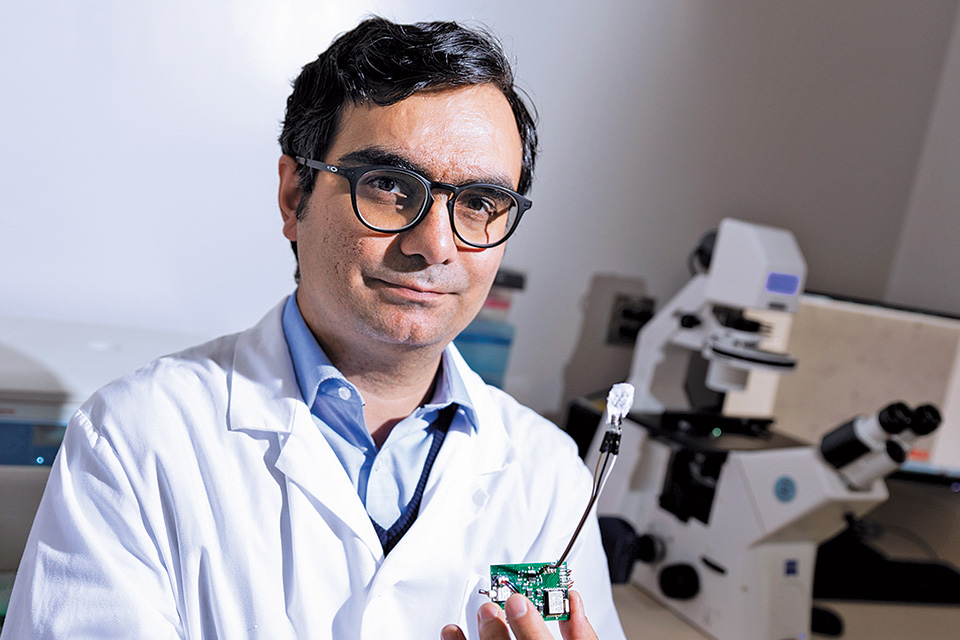
Nature is both inspiration and blueprint for the work of the Laboratory for Innovation in Microengineering (LiME). Led by biomedical engineer Mohsen Akbari, LiME researchers are designing “smart microfibres” they can weave into gauze-like fabric to treat burns and other wounds.
The fibres are engineered to detect the earliest sign of infection and deliver drug therapies without a bandage ever having to be removed. Data from the “smart bandages” is transmitted and monitored using a smartphone.
- Read the KnowlEDGE story on UVic News
- Following publication of KnowlEdge online and in the Times Colonist, NSERC featured the story on their news site and Akbari did interviews with a number of media outlets including CTV News and Science Magazine.
Drug checking project responds to overdose crisis
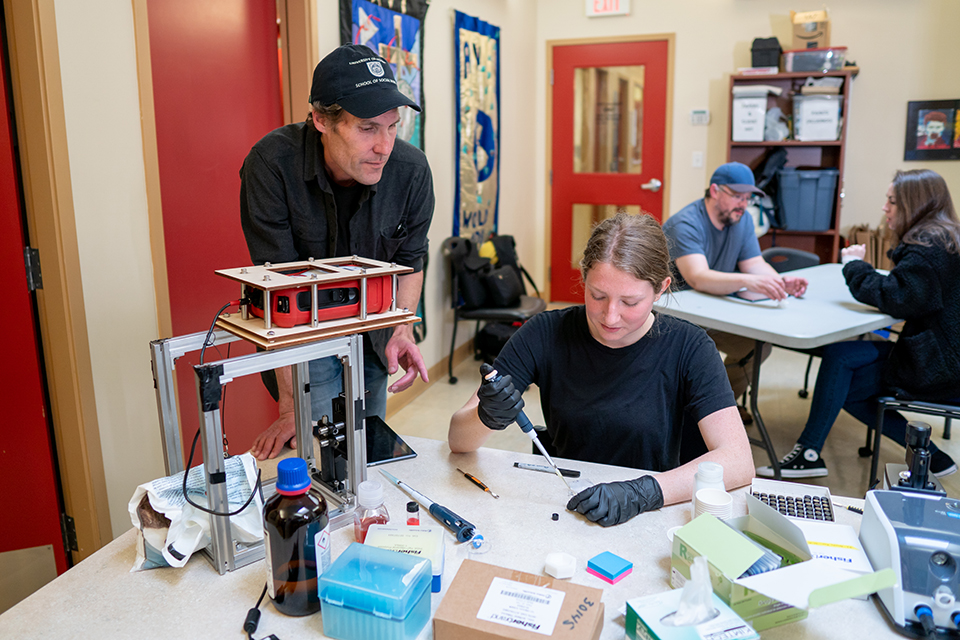
The Vancouver Island Drug Checking Project is an innovative program designed by Dennis Hore (chemistry) and Bruce Wallace (social work) that provides a quick, accurate chemical analysis of drugs in order to prevent overdoses. The study being piloted at a number of Victoria harm-reduction sites is comparing and evaluating a number of different instruments and technologies for cost, efficiency and portability. Through surveys and interviews, UVic researchers—including computer scientists and nursing faculty—are also able to explore what type of service works for whom, in what settings.
The three-year pilot project was initiated by a $1.7 million grant from Health Canada’s Substance Use and Addictions Program.
- Read the story on UVic News
- The project received broad regional coverage and interviews including CHEK News , Times Colonist, CBC Radio and CBC News, Global News, Victoria News, CTV News and CFAX.
Methane-snacking crabs suggest climate hedge
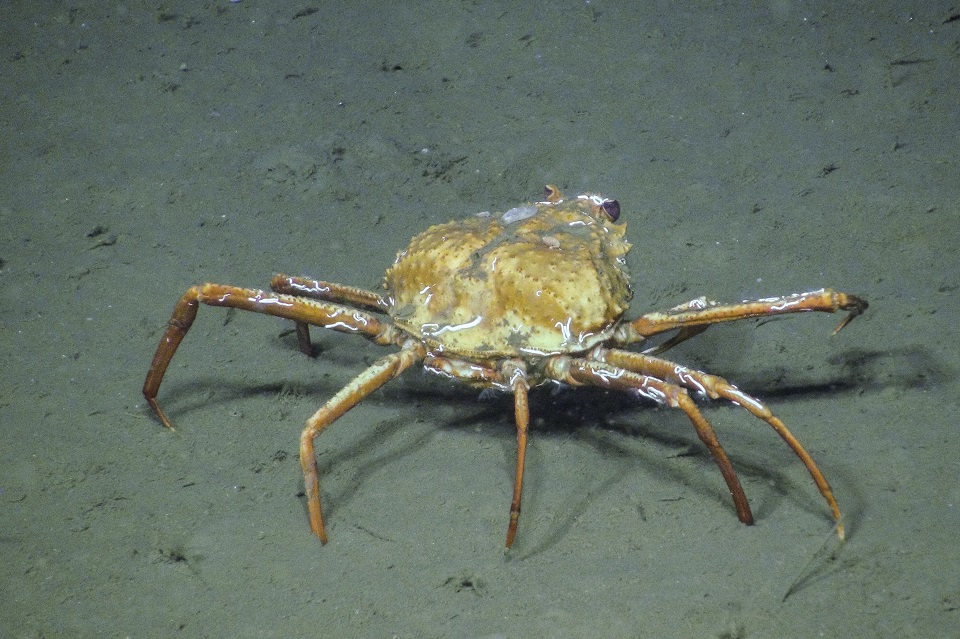
Tanner crabs observed feasting at a bubbling methane seep on the deep seafloor in the northeast Pacific Ocean may be developing a way to adapt to climate change, says a marine ecologist from UVic whose work with Oregon-based researchers established for the first time that a commercially harvested species is feeding on the energy source.
- Read the story on UVic News
- The Globe and Mail featured this research in its national edition, complete with infographic and video.
Dance your PhD winner turns physics into art
UVic physics alumni Pramodh Senarath Yapa won the 2018 Dance Your PhD contest, sponsored by Science and the American Association for the Advancement of Science.
The contest challenges scientists around the world to explain their research without PowerPoint presentations or jargon. For his submission, Senarath Yapa produced a nine-minute video—he wrote the music, the lyrics and enlisted the help of choreographers and 17 other students and members of a swing dance club. His swinging electron dance snagged the top prize of US$1,000 and “immortal geek fame.”
Read more stories from UVic News and follow @UVicNews and @ uvic for news as it happens.










